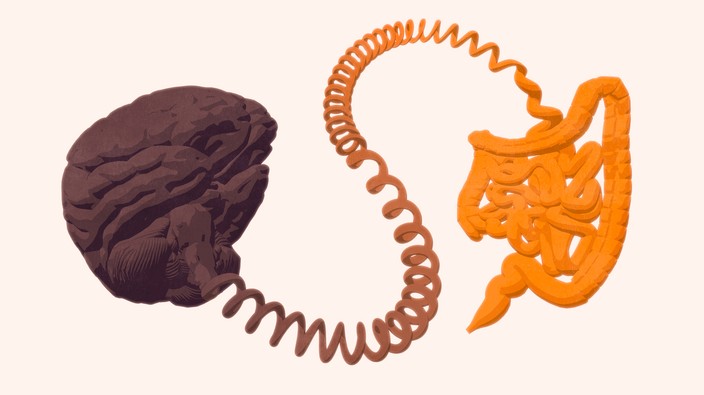alzheimer’s disease and gut disorders share genetic link: study
researchers find more data confirming connection between the brain’s cognitive and emotional centres and the functioning of the intestines.

researchers findings may lead to innovative new therapies that will benefit patients with either ad or gut disorders. getty
a new study has confirmed a genetic link between gut disorders and alzheimer’s disease (ad), a finding researchers hope will help spur new innovations and treatments for both conditions.
although previous research has suggested a connection between gastrointestinal tract disorders and alzheimer’s, the study, published in the journal communications biology, is the first comprehensive assessment of a genetic relationship. “the study provides a novel insight into the genetics behind the observed co-occurrence of ad and gut disorders,” said emmanuel adewuyi, the research lead from edith cowan university (ecu).
“this improves our understanding of the causes of these conditions and identifies new targets to investigate to potentially detect the disease earlier and develop new treatments for both types of conditions.”
alzheimer’s disease is a chronic condition that is believed to be the result of the accumulation of certain proteins in the brain that leads to the slow death of neurons, according to the alzheimer’s association. this process eventually produces symptoms of memory loss, difficulty thinking or changes in mood and behaviour. the disease is the most common cause of dementia, accounting for 60 to 80 per cent of all cases, and more than 747,000 canadians are currently living with alzheimer’s or another form of dementia. roughly 65 per cent of people diagnosed with the disease after the age of 65 are women.
advertisement
while the current study was unable to conclude whether gut disorders cause alzheimer’s, or vice versa, the large-scale analysis involving hundreds of thousands of patients yielded invaluable information. “these findings provide further evidence to support the concept of the ‘gut-brain’ axis, a two-way link between the brain’s cognitive and emotional centres and the functioning of the intestines,” said simon laws, study supervisor and director of the centre for precision health at ecu.
the deeper the team looked into the shared genetics between the two conditions, the more connections they found. of particular note was the role cholesterol might play.
‘elevated cholesterol in the brain has been linked to brain degeneration’
“looking at the genetic and biological characteristics common to ad and these gut disorders suggests a strong role for lipids metabolism, the immune system and cholesterol-lowering medications,” laws said.
“whilst further study is needed into the shared mechanisms between the conditions, there is evidence high cholesterol can transfer into the central nervous system, resulting in abnormal cholesterol metabolism in the brain. there is also evidence suggesting abnormal blood lipids may be caused or made worse by gut bacteria (h.pylori), all of which support the potential roles of abnormal lipids in ad and gut disorders. for example, elevated cholesterol in the brain has been linked to brain degeneration and subsequent cognitive impairment.”
advertisement
although more research will be required, the team is hopeful these links may lead to innovative new therapies that will benefit patients with either ad or gut disorders. they also found evidence that diet may be an integral component when it comes to treating and preventing either condition.
“evidence indicates statins have properties which help reduce inflammation, modulate immunity and protect the gut,” adewuyi said.
dave yasvinski is a writer with healthing.ca
thank you for your support. if you liked this story, please send it to a friend. every share counts.
 2 minute read
2 minute read





